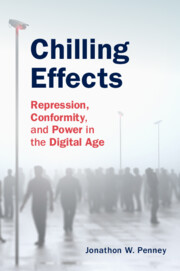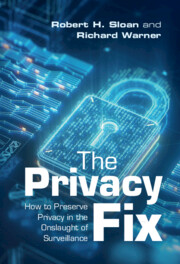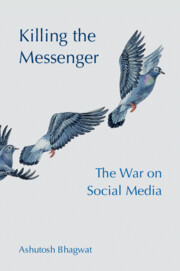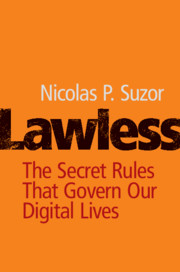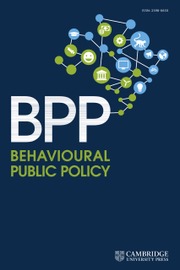Chilling Effects
In Chilling Effects, Jonathon W. Penney explores the increasing weaponization of surveillance, censorship, and new technology to repress and control us. With corporations, governments, and extremist actors using big data, cyber-mobs, AI, and other threats to limit our rights and freedoms, concerns about chilling effects – or how these activities deter us from exercising our rights – have become urgent. Penney draws on law, privacy, and social science to present a new conformity theory that highlights the dangers of chilling effects and their potential to erode democracy and enable a more illiberal future. He critiques conventional theories and provides a framework for predicting, explaining, and evaluating chilling effects in a range of contexts. Urgent and timely, Chilling Effects sheds light on the repressive and conforming effects of technology, state, and corporate power, and offers a roadmap of how to respond to their weaponization today and in the future.
- Introduces and explains the concept of chilling effects
- Illustrates the scale and scope of the threat chilling effects pose to freedom, democracy, and fundamental rights
- Provides a theory and framework to predict, explain, and evaluate chilling effects in a wide variety of contexts, and a roadmap on how to respond to them
Product details
November 2025Hardback
9781108485876
250 pages
229 × 152 mm
Not yet published - available from November 2025
Table of Contents
- Introduction
- Part I. Conventional Chilling Effects Theories and their Limits:
- 1. Law's Flawed Theory and its McCarthy Era Origins
- 2. Privacy's Useful but Limited Theory
- Part II. A New Understanding:
- 3. Social Chilling Effects
- 4. A Conformity Theory of Chilling Effects
- 5. A Taxonomy of Chilling Effects
- Part III. Implications:
- 6. The Dangers of Chilling Effects
- 7. What Chilling Effects Theory is For
- 8. A Framework for Hard Cases
- 9. Transforming Chilling Effects Doctrine
- 10. The Future of Chilling Effects and How to Stop It
- Conclusion.

